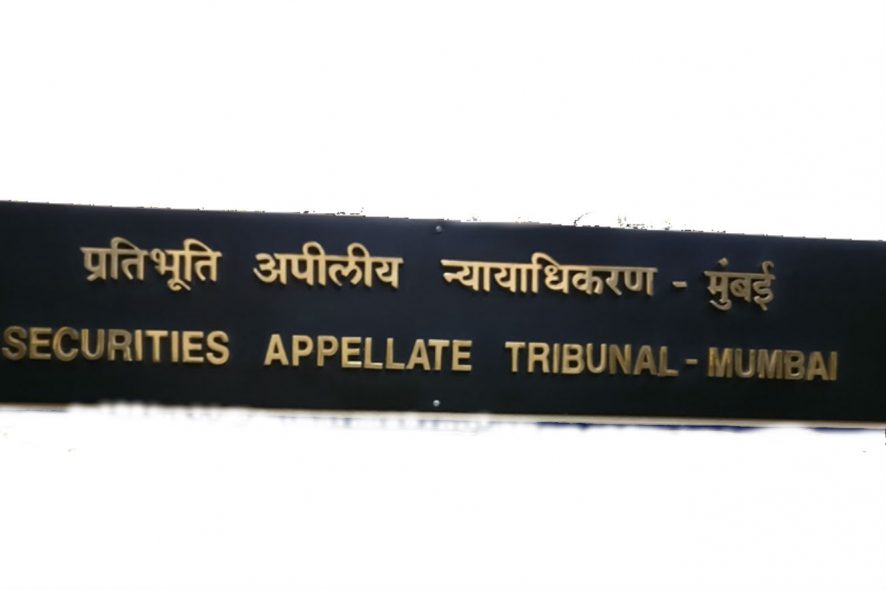Securities Appellate Tribunal (SAT): Coram of Justice Tarun Agarwala (Presiding Officer), Dr C.K.G. Nair (Member), and Justice M.T. Joshi (Judicial Member), quashed an order by the WTM who held the appellant vicariously liable for an act of the Company she worked in.
SEBI received a complaint against Silicon Projects India Limited (SPIL) in respect of the issue of Secured Redeemable Non-Convertible Debentures (NCDs) and consequently made an investigation as to whether SPIL made any public issue of securities without complying with the provisions of the Companies Act, 1956. On investigation, it was found that SPIL had made an offer of NCDs in the financial years 2009-10, 2010-11, 2011-12 and raised an amount of Rs 18.03 crore from 406 allottees. This offer was found to be in violation of the provisions of SEBI Act, 1992, the Companies Act, 1956 and SEBI (Issue and Listing of Debt Securities) Regulations, 2008 (ILDS Regulations). Accordingly, SEBI passed an order on 03-03-2016 for their debarment and refund to the investors against SPIL and its Directors. Since the directions were not complied with, SEBI initiated recovery proceedings against the Company and its Directors.
Along with the appellant, Shib Narayan Das and Antara Mukherjee were also Directors of SPIL during the issuance of the NCDs and were also engaged in fund mobilizing activity. SEBI issued an interim order on 07-03-2016 restraining them from accessing the securities market and further prohibited from buying, selling or dealing in the securities market and asked them to provide a full inventory of all their assets and properties.
By the same interim order, the appellant and the other Directors were directed to show cause as to why action should not be taken under Section 11 and 11-B of the SEBI Act to refund the money collected with interest.
The appellant filed a reply contending that she was appointed as a receptionist in 2009 on a salary of Rs 3000 and in March 2011, she was made a Director of the Company and her salary was increased to Rs 5000 per month. She gave her resignation as a Director on 01-12-2011. She contended that she had nothing to do with the issuance of NCDs and had never attended any meeting of the Board of Directors nor was a signatory to any Resolution in relation to the issuance of NCDs. Instead, Shib Narayan Das in his capacity of Chairman and Director of the Company used to sign all the necessary documents. Further, she was never involved in any activity of the Company. When CBI investigated the case against the Company in 2016, all the Directors including Shib Narayan Das was arrested but the appellant was not.
The WTM passed an order holding that the appellant is jointly and severally liable to refund the money collected by SPIL as she was a Director in the Company and cannot plead ignorance of the affairs of the Company. The appellant was aggrieved by this order and filed an appeal to challenge this order.
The Tribunal held that the said order was patently erroneous and against the provisions of Section 73(2) of the Companies Act as it was made on the assumption that in the absence of any officer being nominated as an officer in default then all the Directors were liable under Section 5(g) of the Companies Act. The WTM did not rely on any evidence on record and therefore, their order was illegal and unsustainable.
Usually, when an offence is committed by a company, the liability is not imposed on all the officers of the company en bloc. The Companies Act makes a departure from this pattern. It gives an opportunity to the board of directors to distribute the work as between the members of the board or to appoint a managerial person. If nothing of this sort is done, only then the whole board is liable to be prosecuted. In this case, it was not possible to hold one Director vicariously responsible for the acts of the Directors in charge of day-to-day affairs of the Company. The spirit of Section 27 of the SEBI Act indicates that an appellant who has nothing to do with the day-to-day affairs of the Company cannot be held guilty of any violation as there is no such thing as vicarious liability under Section 11-B of the SEBI Act. The order was quashed and the appeal was allowed.[Sayanti Sen v. Securities & Exchange Board of India, 2019 SCC OnLine SAT 132, decided on 09-08-2019]







